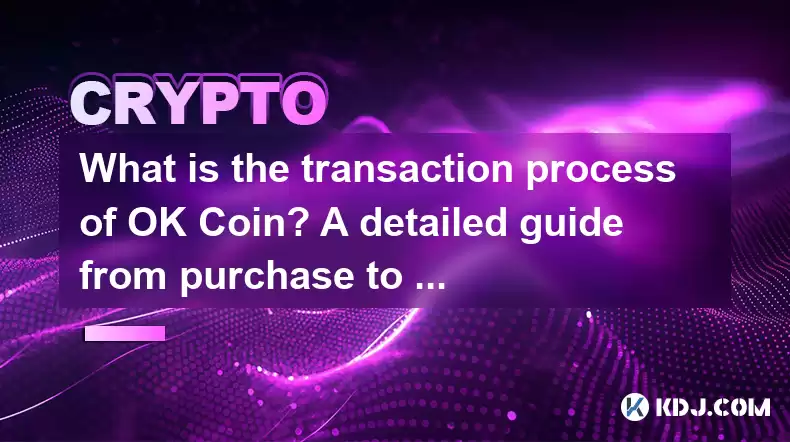-
 Bitcoin
Bitcoin $115100
1.27% -
 Ethereum
Ethereum $3675
2.71% -
 XRP
XRP $2.995
1.45% -
 Tether USDt
Tether USDt $1.000
0.02% -
 BNB
BNB $769.8
2.64% -
 Solana
Solana $168.0
3.25% -
 USDC
USDC $0.9999
-0.01% -
 TRON
TRON $0.3371
1.48% -
 Dogecoin
Dogecoin $0.2051
3.36% -
 Cardano
Cardano $0.7394
2.30% -
 Hyperliquid
Hyperliquid $38.15
0.42% -
 Stellar
Stellar $0.3966
-0.36% -
 Sui
Sui $3.486
2.93% -
 Chainlink
Chainlink $16.72
2.52% -
 Bitcoin Cash
Bitcoin Cash $568.0
4.36% -
 Hedera
Hedera $0.2440
2.59% -
 Ethena USDe
Ethena USDe $1.001
0.04% -
 Avalanche
Avalanche $22.16
2.06% -
 Litecoin
Litecoin $119.1
-0.73% -
 UNUS SED LEO
UNUS SED LEO $8.991
0.04% -
 Toncoin
Toncoin $3.232
-0.39% -
 Shiba Inu
Shiba Inu $0.00001233
2.82% -
 Uniswap
Uniswap $9.717
2.53% -
 Polkadot
Polkadot $3.664
1.85% -
 Dai
Dai $1.000
0.01% -
 Monero
Monero $281.2
-3.89% -
 Bitget Token
Bitget Token $4.350
1.55% -
 Cronos
Cronos $0.1428
5.07% -
 Pepe
Pepe $0.00001050
3.68% -
 Aave
Aave $262.3
3.54%
What is the transaction process of OK Coin? A detailed guide from purchase to use
OKCoin's transaction process involves account creation, KYC verification, funding, order placement (using market, limit, or stop-loss orders), and withdrawal, all while employing robust security measures and understanding associated fees.
Mar 17, 2025 at 09:37 pm

Key Points:
- OKCoin's transaction process involves account creation, KYC verification, deposit funding, order placement, and finally, withdrawal of profits or remaining funds.
- Different transaction types exist on OKCoin, including limit orders, market orders, and stop-loss orders, catering to various trading strategies.
- Security measures are crucial throughout the process, including two-factor authentication and secure storage practices.
- Understanding fees associated with deposits, withdrawals, and trading is essential for managing costs effectively.
- Navigating the platform requires familiarity with its interface and order book.
What is the transaction process of OKCoin? A detailed guide from purchase to use
1. Account Creation and Verification:
Before engaging in any transactions, you must create an account on the OKCoin platform. This involves providing an email address, choosing a strong password, and agreeing to their terms of service. After account creation, you'll need to complete the Know Your Customer (KYC) verification process. This typically requires uploading identification documents like a passport or driver's license. This step is essential for complying with anti-money laundering regulations and securing your account.
2. Depositing Funds:
Once your account is verified, you can deposit funds. OKCoin supports various cryptocurrencies and fiat currencies depending on your region. Navigate to the "Deposit" section, select your desired currency, and follow the provided instructions. You'll typically receive a unique deposit address to send your funds. Ensure you use the correct address to avoid irreversible loss of funds. Remember to double-check the transaction details before proceeding.
3. Placing Orders:
OKCoin offers various order types to suit different trading strategies. A market order executes immediately at the best available price, while a limit order allows you to specify the price at which you want to buy or sell. A stop-loss order automatically sells your asset if the price drops below a specified level, limiting potential losses. Understanding these order types is crucial for managing risk and maximizing profits. The platform provides detailed explanations for each order type.
4. Executing Trades:
After placing an order, it will be matched with a corresponding order from another user. If your order is filled, your transaction will be completed, and your account balance will be updated accordingly. The platform provides real-time updates on the status of your orders. You can monitor your trades through your order history.
5. Withdrawing Funds:
Once you're ready to withdraw your funds, navigate to the "Withdraw" section. Select your desired cryptocurrency or fiat currency and enter the withdrawal amount. You'll need to provide a valid withdrawal address. Double-check all the details before confirming the withdrawal to avoid sending funds to the wrong address. Withdrawal processing times vary depending on the chosen method and network congestion.
6. Security Measures:
OKCoin employs several security measures to protect your account and funds. Enabling two-factor authentication (2FA) adds an extra layer of security, requiring a code from your phone or authenticator app in addition to your password. Regularly review your account activity for any suspicious transactions. Avoid sharing your login credentials with anyone. Use strong and unique passwords for all your online accounts.
7. Understanding Fees:
OKCoin charges fees for various services. These include trading fees, which are typically a small percentage of the transaction value, deposit fees (sometimes waived), and withdrawal fees which vary based on the cryptocurrency and the withdrawal network. Understanding these fees is crucial for managing your trading costs effectively. The fee schedule is usually clearly outlined on the platform.
8. Navigating the OKCoin Platform:
Familiarize yourself with the OKCoin platform's interface. The order book displays current buy and sell orders, showing the available liquidity at various price levels. Understanding the order book is crucial for informed trading decisions. The platform often provides tutorials and guides to assist new users.
Frequently Asked Questions:
Q: What cryptocurrencies does OKCoin support?
A: OKCoin supports a wide range of cryptocurrencies, including Bitcoin (BTC), Ethereum (ETH), Litecoin (LTC), and many others. The exact list may vary depending on your region and the platform's updates. Check the OKCoin website for the most up-to-date list of supported cryptocurrencies.
Q: How long does it take to verify my account?
A: Account verification time varies. It can range from a few minutes to several days, depending on the volume of verification requests and the thoroughness of the document review process.
Q: What are the fees on OKCoin?
A: OKCoin charges trading fees, deposit fees (which might be waived), and withdrawal fees. The specific fees depend on the cryptocurrency, trading volume, and the withdrawal method. Details are available on the OKCoin fee schedule page.
Q: Is OKCoin safe?
A: OKCoin employs various security measures, including 2FA and secure storage practices. However, no platform is entirely immune to security risks. Users should always practice good security habits and remain vigilant.
Q: How do I contact OKCoin support?
A: OKCoin offers various support channels, including email, live chat, and a comprehensive help center with FAQs and tutorials. The specific contact methods available might vary depending on your region and account status. Check the OKCoin website for their support contact information.
Disclaimer:info@kdj.com
The information provided is not trading advice. kdj.com does not assume any responsibility for any investments made based on the information provided in this article. Cryptocurrencies are highly volatile and it is highly recommended that you invest with caution after thorough research!
If you believe that the content used on this website infringes your copyright, please contact us immediately (info@kdj.com) and we will delete it promptly.
- BlockDAG, Litecoin, and Cardano: Charting the Course in Crypto's Dynamic Waters
- 2025-08-07 09:09:06
- Fireverse Token: Igniting a Musical Revolution in Web3
- 2025-08-07 08:27:45
- Ethereum, L2 Withdrawals, and Decentralization: A New Yorker's Take
- 2025-08-07 08:32:33
- Avalanche vs. Ruvi AI: Daily Sales Tell a Story of Crypto Disruption
- 2025-08-07 06:29:35
- DeSoc: The Crypto to Buy Now for a Decentralized Future (and Maybe 43x Gains!)
- 2025-08-07 06:50:16
- Arctic Pablo Coin: Riding the Meme Coin Wave with a Deflationary Twist
- 2025-08-07 07:18:13
Related knowledge

What is Chainlink (LINK)?
Jul 22,2025 at 02:14am
Understanding Chainlink (LINK): The Decentralized Oracle NetworkChainlink is a decentralized oracle network designed to bridge the gap between blockch...

What is Avalanche (AVAX)?
Jul 22,2025 at 08:35am
What is Avalanche (AVAX)?Avalanche (AVAX) is a decentralized, open-source blockchain platform designed to support high-performance decentralized appli...

What is Polkadot (DOT)?
Jul 19,2025 at 06:35pm
Understanding the Basics of Polkadot (DOT)Polkadot (DOT) is a multi-chain network protocol designed to enable different blockchains to transfer messag...

What is Litecoin (LTC)?
Jul 23,2025 at 11:35am
Overview of Litecoin (LTC)Litecoin (LTC) is a peer-to-peer cryptocurrency that was created in 2011 by Charlie Lee, a former Google engineer. It is oft...

What is Monero (XMR)?
Jul 21,2025 at 10:07am
What is Monero (XMR)?Monero (XMR) is a decentralized cryptocurrency designed to provide enhanced privacy and anonymity for its users. Unlike Bitcoin a...

How to add indicators to Ethereum chart on TradingView?
Jul 19,2025 at 07:15am
What Is an Ethereum Chart on TradingView?The Ethereum chart on TradingView is a visual representation of the price movement of Ethereum (ETH) over a s...

What is Chainlink (LINK)?
Jul 22,2025 at 02:14am
Understanding Chainlink (LINK): The Decentralized Oracle NetworkChainlink is a decentralized oracle network designed to bridge the gap between blockch...

What is Avalanche (AVAX)?
Jul 22,2025 at 08:35am
What is Avalanche (AVAX)?Avalanche (AVAX) is a decentralized, open-source blockchain platform designed to support high-performance decentralized appli...

What is Polkadot (DOT)?
Jul 19,2025 at 06:35pm
Understanding the Basics of Polkadot (DOT)Polkadot (DOT) is a multi-chain network protocol designed to enable different blockchains to transfer messag...

What is Litecoin (LTC)?
Jul 23,2025 at 11:35am
Overview of Litecoin (LTC)Litecoin (LTC) is a peer-to-peer cryptocurrency that was created in 2011 by Charlie Lee, a former Google engineer. It is oft...

What is Monero (XMR)?
Jul 21,2025 at 10:07am
What is Monero (XMR)?Monero (XMR) is a decentralized cryptocurrency designed to provide enhanced privacy and anonymity for its users. Unlike Bitcoin a...

How to add indicators to Ethereum chart on TradingView?
Jul 19,2025 at 07:15am
What Is an Ethereum Chart on TradingView?The Ethereum chart on TradingView is a visual representation of the price movement of Ethereum (ETH) over a s...
See all articles

























































































